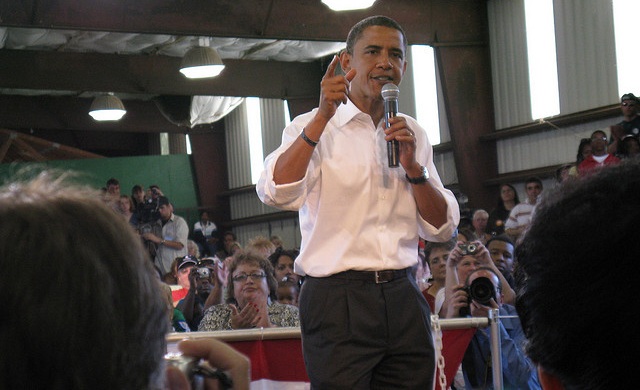President Barack Obama has said that failure by the United States government to reach an agreement on further raising the nation’s debt ceiling would lead to “catastrophic consequences”.

The Democratic president faces the challenge of reaching an agreement with Republican majority in the House of Representatives, with the Unites States Senate currently under Democratic control, but stated that he will “not compromise” on his aim to raise the debt ceiling and the Republicans in Congress are playing a “dangerous game” that would negatively impact both families and businesses.
The debt ceiling, previously raised in August 2011, is a law that places a cap on the level of debt the US federal government can hold at any one time. The Republican Speaker of the House of Representatives, John Boehner, has said that “significant spending cuts” were required to resolve the nation’s economic challenges instead of increased levels of debt.
Calling for what he considers a balanced approach Mr Obama accepted that spending cuts were necessary but said that they must be “balanced with more reforms to our tax code” and that “the wealthiest individuals and the biggest corporations shouldn’t be able to take advantage of loopholes and deductions that aren’t available to most Americans”.
Speaking on the weekend after an initial deal was made between the Republican and Democratic parties to stop the US going off of the ‘fiscal cliff’ Mr Obama argued that “if Congress refuses to give the United States the ability to pay its bills on time, the consequences for the entire global economy could be catastrophic.”
Christine Lagarde, Managing Director of the International Monetary Fund, echoed President Obama’s remarks saying that, if coupled with a failure to resolve the on-going European debt crisis, the potential inability of US lawmakers to reach an agreement could lead to a “major world economic crisis”.
Mr Obama’s comments come a day after the US S&P 500 index closed the first trading week of 2013 at a five-year high of 1466.47. The index had reached a record low as 676.53 in March 2009. The Dow Jones Industrial average also recorded gains of 3.8% for the week and closed at 13435.21, with the Nasdaq index closing at 3101.66.
There we further signs that the US economy was in recovery following the announcement from the US Labor Department that 155,000 jobs were created in December, though the national unemployment rate remained at 7.8%.


















